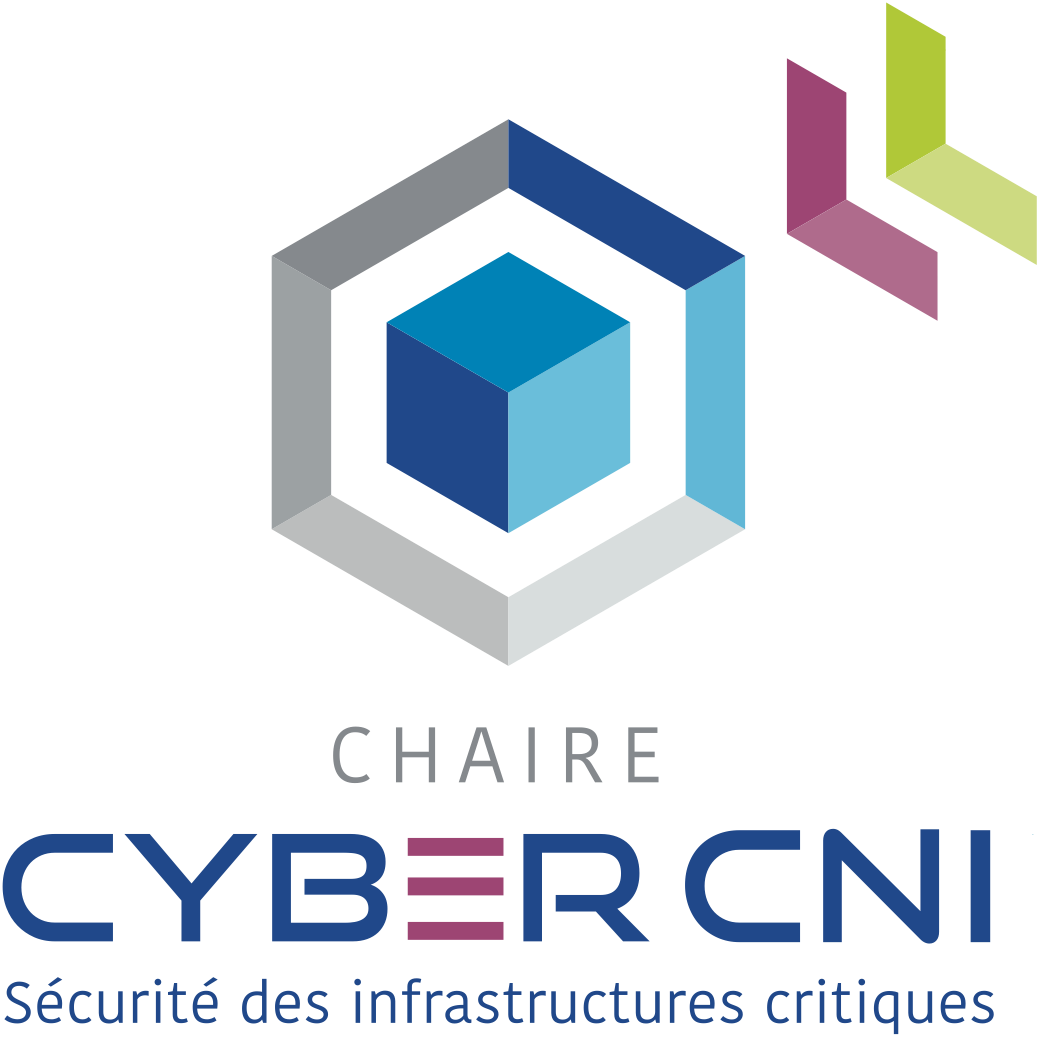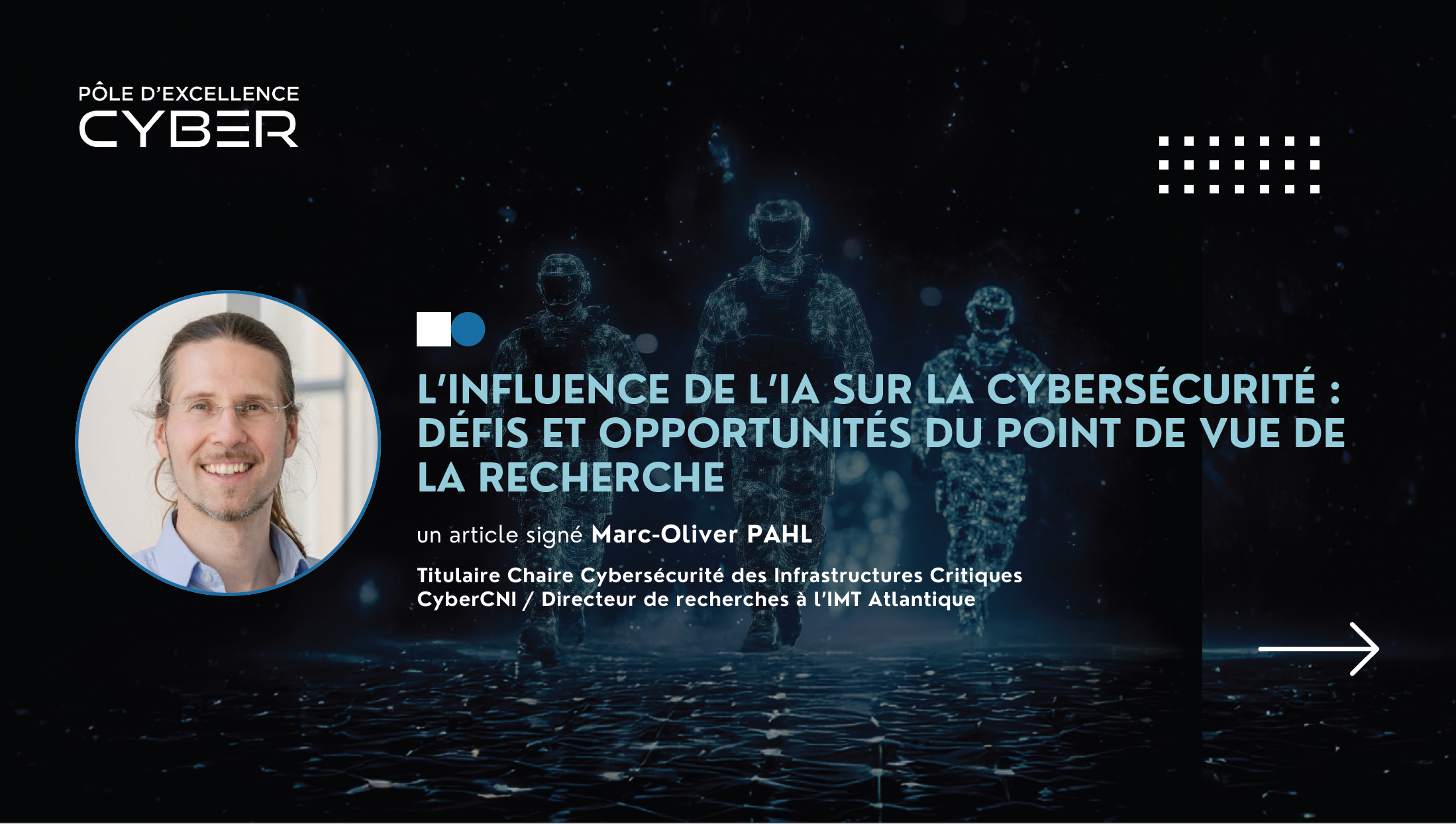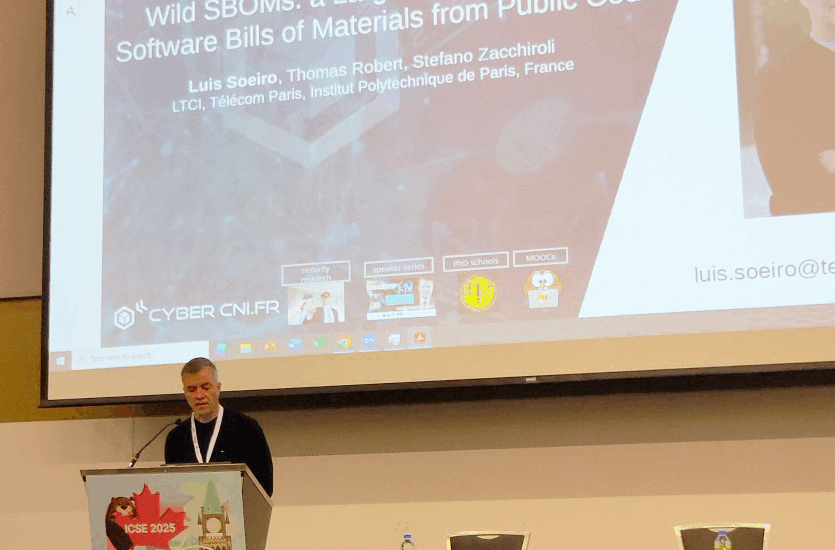[RU1/22] Awaleh Houssein Meraneh : Automated Learning for Handling Cyber-Physical Attacks
On the research update spring 2022, our PhD student Awaleh Meraneh presented his latest results regarding “Automated Learning for Handling Cyber-Physical Attacks“. This presentation is a part of our bi-yearly research update events of the chair Cybersecurity for Critical Networked Infrastructures (cyberCNI.fr). More infos on our website https://cyberCNI.fr/
We cordially invite you to contact us for collaborations, partnerships, etc. We are constantly looking for new industry partners to strengthen our profile. Make an appointment to find out more!
Abstract
Cyber-physical systems (CPS) use a communication network to connect the physical and cyber worlds; this integration makes CPS vulnerable to certain cyber-physical attacks. As a result, CPSs are at the center of some of the most significant security vulnerabilities in recent history, such as Stuxnet or the Maroochy waste management systems. This thesis aims to establish detection methods against cyber-physical attacks. Our study focuses on industrial control systems, which are one of the applications of CPS. The major goal of this thesis is to use side channel leakage parameters to detect abnormalities (system failure, cyber-attacks) in industrial control systems. These leakage parameters include things like sound, power usage, electromagnetic, and so on. Review the existing sound anomaly detection methods for ICS in the literature, and to then propose our own sound anomaly detection approach. The experimental part of our research is guaranteed by a test bed named Fischertechnik of the CyberCNI chair. In another way, we generate our own dataset with a well-deőned use case mentioned above.
About Awaleh Houssein Meraneh
After receiving a Bachelor’s degree in Computer Mathematics from the University of Djibouti in 2018, I went on to the University of Limoges to pursue a Master’s degree in Information Security and Cryptology. This program provided me with advanced cryptology skills, both theoretically and practically. Additionally, the training projects (both research and practical) allowed me to become familiar with concepts such as quantum and post-quantum cryptography, PKI, and certiőcations. Moreover, I did my end-of-study internship in the SRCD department of the IMT Atlantic campus in Rennes. I was supervised by Hélène Le Bouder, with whom I still work (in the case of my thesis) and Gaël Thomas, cryptologist engineer at the DGA (Direction générale de l’armement). The subject of my internship is “blind auxiliary channel attacks on the LFSR of Elephant (a lightweight algorithm)”. An article is being written on the results obtained during the internship. It is through projects, internships and the passion I have for research that I decided to continue my adventure in the research őeld.
About the cyberCNI.fr Research Update
The cyberCNI.fr (https://cyberCNI.fr/) Research Update (Spring/ Fall) happens once per semester. It is the big status event of the chair Cyber CNI. All works around the chair (PhD students, PostDocs, Engineers, …) are presenting their progress, current works, and next challenges. There are vital discussions with the audience on the topics. It is the perfect opportunity for getting an overview on and discussing what is going on at the chair. From the spring 2022 event on, the Research Updates start with an industrial keynote of one of our partners, giving insights to and showcasing their work.
About the chair Cybersecurity of Critical Networked Infrastructures (cyberCNI.fr)
The Cyber CNI Chair at IMT Atlantique is devoted to research, innovation, and teaching in the field of the cybersecurity of critical infrastructures, including industrial processes, financial systems, building automation, energy networks, water treatment plants, transportation. The chair covers the full stack from sensors and actuators and their signals over industrial control systems, distributed services at the edge or cloud, to user interfaces with collaborative Mixed Reality, and security policies. The chair currently hosts 6+3 PhD students, 1+3 PostDocs, 11 Professors, 1+1 engineers, and 1 internship student.
The chair runs a large testbed that enables applied research together with the industry partners. The industry partners of the current third funding round are Airbus, Amossys, BNP Paribas, EDF, and SNCF. The chaire is located in Brittany, France. Brittany is the cybersecurity region number 1 in France. The chair Cyber CNI is strongly embedded in the cybersecurity ecosystem through its partnerships with the Pôle d’Excellence Cyber (PEC) and the Brittany Region. The chair provides a unique environment for cybersecurity research with lots of development possibilities.
- Les AFTERS by Pôle Excellence Cyber - April 7, 2023
- Federated Learning as enabler for Collaborative Security between not Fully-Trusting Distributed Parties - February 10, 2023
- [RU2/22] Anthony DAVID : Virtual Reality for cybersecurity data vizualisation - December 21, 2022









